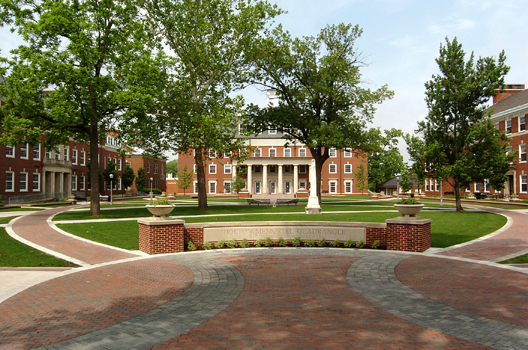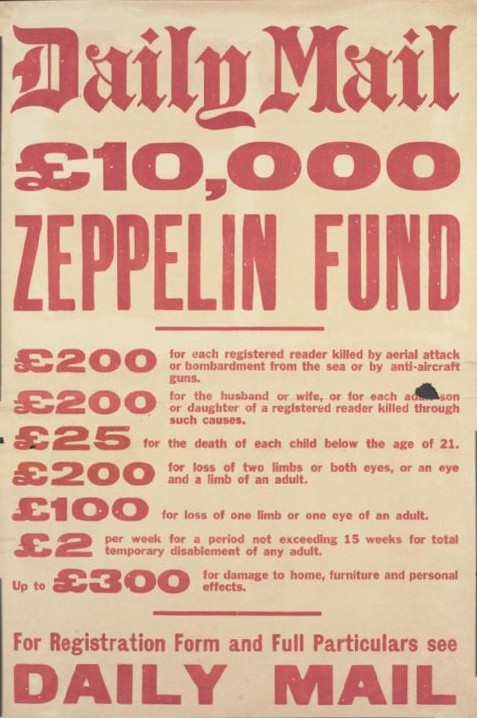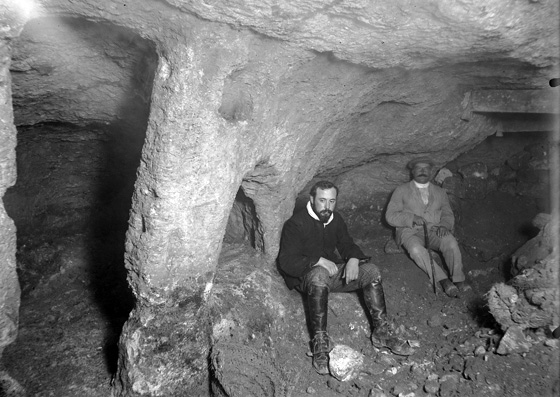|
William Le Queux
William Tufnell Le Queux ( , ; 2 July 1864 – 13 October 1927) was an Anglo-French journalist and writer. He was also a diplomat (honorary consul for San Marino), a traveller (in Europe, the Balkans and North Africa), a flying buff who officiated at the first British air meeting at Doncaster in 1909, and a wireless pioneer who broadcast music from his own station long before radio was generally available; his claims regarding his own abilities and exploits, however, were usually exaggerated. His best-known works are the anti-French and anti-Russian invasion fantasy '' The Great War in England in 1897'' (1894) and the anti-German invasion fantasy '' The Invasion of 1910'' (1906), the latter becoming a bestseller. Early life Le Queux was born in London. His father was a French draper's assistant and his mother was English. He was educated in Europe and studied art under Ignazio (or Ignace) Spiridon in Paris. He carried out a foot tour of Europe as a young man before supporting ... [...More Info...] [...Related Items...] OR: [Wikipedia] [Google] [Baidu] |
London
London is the capital and List of urban areas in the United Kingdom, largest city of England and the United Kingdom, with a population of just under 9 million. It stands on the River Thames in south-east England at the head of a estuary down to the North Sea, and has been a major settlement for two millennia. The City of London, its ancient core and financial centre, was founded by the Roman Empire, Romans as ''Londinium'' and retains its medieval boundaries.See also: Independent city#National capitals, Independent city § National capitals The City of Westminster, to the west of the City of London, has for centuries hosted the national Government of the United Kingdom, government and Parliament of the United Kingdom, parliament. Since the 19th century, the name "London" has also referred to the metropolis around this core, historically split between the Counties of England, counties of Middlesex, Essex, Surrey, Kent, and Hertfordshire, which largely comprises Greater London ... [...More Info...] [...Related Items...] OR: [Wikipedia] [Google] [Baidu] |
World War I
World War I (28 July 1914 11 November 1918), often abbreviated as WWI, was one of the deadliest global conflicts in history. Belligerents included much of Europe, the Russian Empire, the United States, and the Ottoman Empire, with fighting occurring throughout Europe, the Middle East, Africa, the Pacific, and parts of Asia. An estimated 9 million soldiers were killed in combat, plus another 23 million wounded, while 5 million civilians died as a result of military action, hunger, and disease. Millions more died in genocides within the Ottoman Empire and in the 1918 influenza pandemic, which was exacerbated by the movement of combatants during the war. Prior to 1914, the European great powers were divided between the Triple Entente (comprising France, Russia, and Britain) and the Triple Alliance (containing Germany, Austria-Hungary, and Italy). Tensions in the Balkans came to a head on 28 June 1914, following the assassination of Archduke Franz Ferdi ... [...More Info...] [...Related Items...] OR: [Wikipedia] [Google] [Baidu] |
Sunbury-on-Thames
Sunbury-on-Thames (or commonly Sunbury) is a suburban town on the north bank of the River Thames in the Borough of Spelthorne, Surrey, centred southwest of central London. Historically part of the county of Middlesex, in 1965 Sunbury and other surrounding towns were initially intended to form part of the newly created county of Greater London but were instead transferred to Surrey. Sunbury adjoins Feltham to the north, Hampton to the east, Ashford to the northwest and Shepperton to the southwest. Walton-on-Thames is to the south, on the opposite bank of the Thames. The town has two main focal points: Lower Sunbury (known locally as Sunbury Village) is the older part, adjoining the river. Sunbury Common (known locally as Sunbury Cross) is to the north and surrounds the railway station and the London end of the M3 motorway. Lower Sunbury contains most of the town's parks, pubs and listed buildings, whereas Sunbury Common is more urban and includes offices and hotels. Lower Sun ... [...More Info...] [...Related Items...] OR: [Wikipedia] [Google] [Baidu] |
Metropolitan Police
The Metropolitan Police Service (MPS), formerly and still commonly known as the Metropolitan Police (and informally as the Met Police, the Met, Scotland Yard, or the Yard), is the territorial police force responsible for law enforcement and the prevention of crime in Greater London. In addition, the Metropolitan Police is also responsible for some specialised matters throughout the United Kingdom; these responsibilities include co-ordinating and leading national counter-terrorism measures and the personal safety of specific individuals, such as the Monarch and other members of the Royal Family, members of the Government, and other officials (such as the Leader of the Opposition). The main geographical area of responsibilities of the Metropolitan Police District consists of the 32 London boroughs, but does not include the City of London proper — that is, the central financial district also known as the "Square Mile" — which is policed by a separate force, the City of ... [...More Info...] [...Related Items...] OR: [Wikipedia] [Google] [Baidu] |
Legion Of Frontiersmen
The Legion of Frontiersmen is a civilian organisation formed in Britain in 1905 by Roger Pocock, a former constable with the North-West Mounted Police and Boer War veteran. Prompted by fears of an impending invasion of Britain and the Empire, the organisation was founded to be a field intelligence corps that would watch over and protect the boundaries of the Empire. Headquartered in London, the Legion of Frontiersmen formed branches throughout the Empire to prepare enlistees for war and to foster vigilance in peacetime. Despite efforts, the Legion never achieved significant official recognition; in part because many Commonwealth nations' laws prohibit militia groups. Casualties in the First World War devastated the Legion of Frontiersmen, and except for a brief resurgence in the interwar period, a series of schisms and sectarianism prevented attempts to reinvigorate the movement. In the late 1930s, the Legion of Frontiersmen in Canada was formally affiliated with the Royal Canadia ... [...More Info...] [...Related Items...] OR: [Wikipedia] [Google] [Baidu] |
Frederick Roberts, 1st Earl Roberts
Field Marshal Frederick Sleigh Roberts, 1st Earl Roberts, (30 September 1832 – 14 November 1914) was a British Victorian era general who became one of the most successful British military commanders of his time. Born in India to an Anglo-Irish family, Roberts joined the East India Company Army and served as a young officer in the Indian Rebellion during which he was awarded the Victoria Cross for gallantry. He was then transferred to the British Army and fought in the Expedition to Abyssinia and the Second Anglo-Afghan War, in which his exploits earned him widespread fame. Roberts would go on to serve as the Commander-in-Chief, India before leading British Forces for a year during the Second Boer War. He also became the last Commander-in-Chief of the Forces before the post was abolished in 1904. A man of small stature, Roberts was affectionately known to his troops and the wider British public as "Bobs" and revered as one of Britain's leading military figures at a time when ... [...More Info...] [...Related Items...] OR: [Wikipedia] [Google] [Baidu] |
DePauw University
DePauw University is a private liberal arts university in Greencastle, Indiana. It has an enrollment of 1,972 students. The school has a Methodist heritage and was originally known as Indiana Asbury University. DePauw is a member of both the Great Lakes Colleges Association and the North Coast Athletic Conference. The Society of Professional Journalists was founded at DePauw. History Indiana Asbury University was founded in 1837 in Greencastle, Indiana, and was named after Francis Asbury, the first American bishop of the Methodist Episcopal Church. The people of Greencastle raised $25,000 to entice the Methodists to establish the college in Greencastle, which was little more than a village at the time. It was originally established as an all-men's school but began admitting women in 1867. In 1884 Indiana Asbury University changed its name to DePauw University in honor of Washington C. DePauw, who made a sequence of substantial donations throughout the 1870s, which culmin ... [...More Info...] [...Related Items...] OR: [Wikipedia] [Google] [Baidu] |
Daily Mail
The ''Daily Mail'' is a British daily middle-market tabloid newspaper and news websitePeter Wilb"Paul Dacre of the Daily Mail: The man who hates liberal Britain", ''New Statesman'', 19 December 2013 (online version: 2 January 2014) published in London. Founded in 1896, it is the United Kingdom's highest-circulated daily newspaper. Its sister paper '' The Mail on Sunday'' was launched in 1982, while Scottish and Irish editions of the daily paper were launched in 1947 and 2006 respectively. Content from the paper appears on the MailOnline website, although the website is managed separately and has its own editor. The paper is owned by the Daily Mail and General Trust. Jonathan Harmsworth, 4th Viscount Rothermere, a great-grandson of one of the original co-founders, is the current chairman and controlling shareholder of the Daily Mail and General Trust, while day-to-day editorial decisions for the newspaper are usually made by a team led by the editor, Ted Verity, who succ ... [...More Info...] [...Related Items...] OR: [Wikipedia] [Google] [Baidu] |
Montagu Parker, 5th Earl Of Morley
Montagu Brownlow Parker, 5th Earl of Morley (13 October 1878 – 28 April 1962) was a British aristocrat and army officer. He became famous for the eponymous expedition he led to Jerusalem starting in 1909 which searched for the Ark of the Covenant and other treasures for the First Temple. Biography Parker was the second son of Albert Edmund Parker, 3rd Earl of Morley, and was educated at Eton. He was commissioned into the British Army as a second lieutenant in the Grenadier Guards on 20 May 1899, and promoted to lieutenant on 29 January 1900. He served with the 2nd battalion of his regiment in the Second Boer War in 1900 and 1902, where he was wounded. After the end of the war, he was from June 1902 Aide-de-camp to Major-General Laurence Oliphant, in Command of the Potchefstroom District, returning home six months later in December 1902. Oliphant took the Command of the Home District from 1 January 1903, and selected Parker to continue as his ADC. He was later promot ... [...More Info...] [...Related Items...] OR: [Wikipedia] [Google] [Baidu] |
Sir Arthur Pearson, 1st Baronet
Sir Cyril Arthur Pearson, 1st Baronet, (24 February 1866 – 9 December 1921), was a British newspaper magnate and publisher, best known for founding the ''Daily Express''. Family and early life Pearson was born in the village of Wookey, Somerset, a son of the marriage of Arthur Cyril Pearson and Phillippa Massingberd Maxwell Lyte, a granddaughter of the hymn-writer and poet Henry Francis Lyte. He was educated at Winchester College in Hampshire. His father became rector of Drayton Parslow in Buckinghamshire. His first job was as a journalist working for the London-based publisher George Newnes on '' Tit-Bits'' magazine. Within his first year he had impressed Newnes enough to be made his principal assistant. In December 1887, Pearson married Isobel Sarah Bennett, the daughter of Canon Frederick Bennett, of Maddington, Wiltshire, with whom he had three daughters. In 1897, Pearson married, as his second wife, Ethel, daughter of William John Fraser. Ethel, Lady Pearson, ... [...More Info...] [...Related Items...] OR: [Wikipedia] [Google] [Baidu] |
Things I Know About Kings, Celebrities And Crooks
Things or The Things may refer to: Music * ''Things'' (album), by Uri Caine and Paolo Fresu, 2006 * "Things" (Bobby Darin song), 1962; covered by Ronnie Dove, 1975 * "Things", a song by Joe Walsh from '' There Goes the Neighborhood'', 1981 * "Things", a song by John Cale from ''HoboSapiens'', 2003 * "Things", a song by Split Enz, 1979 * "Things", a song by Paul Westerberg from '' 14 Songs'', 1993 * "The Things", a song by Audio Bullys from '' Ego War'', 2003 Other uses * "The Things" (short story), by Peter Watts * ''Things'' (''Chill''), a 1984 role-playing game supplement * ''Things'' (film), a 1989 Canadian horror film * Things (software), task management software * '' Things: A Story of the Sixties'', a 1965 novel by Georges Perec * The Things, recurring characters in the British adult humour comic ''Viz'' * The Things, Thing One and Thing Two from ''The Cat in the Hat'' by Dr Seuss * T.H.I.N.G.S., a line of games marketed by the Milton Bradley Company See also * Our Th ... [...More Info...] [...Related Items...] OR: [Wikipedia] [Google] [Baidu] |
War Of The Nations
A world war is an international conflict which involves all or most of the world's major powers. Conventionally, the term is reserved for two major international conflicts that occurred during the first half of the 20th century, World WarI (1914–1918) and World WarII (1939–1945), although historians have also described other global conflicts as world wars, such as the Seven Years' War and the Cold War. Etymology The ''Oxford English Dictionary'' cited the first known usage in the English language to a Scottish newspaper, ''The People's Journal'', in 1848: "A war among the great powers is now necessarily a world-war." The term "world war" is used by Karl Marx and his associate, Friedrich Engels, in a series of articles published around 1850 called ''The Class Struggles in France''. Rasmus B. Anderson in 1889 described an episode in Teutonic mythology as a "world war" (Swedish: ''världskrig''), justifying this description by a line in an Old Norse epic poem, "Völuspá: f ... [...More Info...] [...Related Items...] OR: [Wikipedia] [Google] [Baidu] |
_cover_by_Harold_Piffard.jpg)






